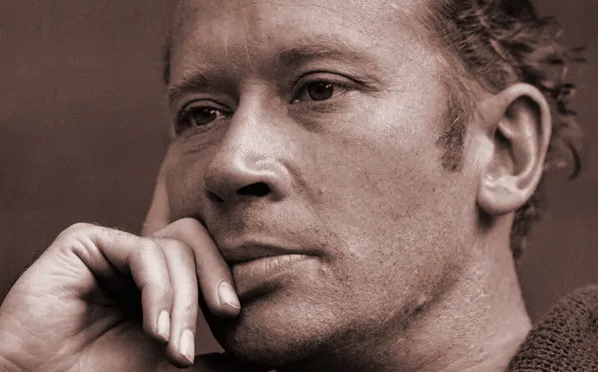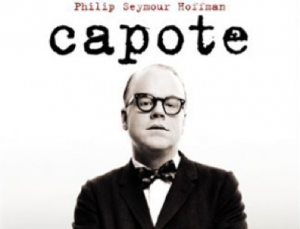Here’s the thing about works of art that we all grow up with, have to analyze as kids, and dismiss because they seem dated or obvious, hackneyed or over-explained: Sometimes they’re actually wonderful after all.
For example, the poems of E. E. Cummings. During my junior high and high school years in the 1970s, he was one of the more frequently taught poets, largely because his acrobatics with punctuation and wordplay are fun and accessible even to people who claim to hate poetry. I know there are critics and readers who think him naive or over-exposed; they find him too accessible or well-known to seek him out afresh to find pleasure or insight.
What a shame.
I occasionally reread his poems in the expectation that, at last, I’ll find them somehow embarrassingly old-fashioned and obvious. But they never feel that way to me. They still have those great lines that punch me or move me when I don’t expect it, the casual colloquialisms, the thoughts that beg to be combined into one word to emphasize their speed or oneness. All of those devices can be found in “Buffalo Bill’s,” for example.
One of the most anthologized of his poems is the light but surprisingly touching poem “in Just-,” which evokes the way children explode out into the world and splash and stomp and whirl through it in springtime. I still love its cadences, the way friends bettyandisbel and eddyandbill are so constantly with each other that they merge into single entities, the bittersweet everpresence of that little lame balloon man as he whistles far and wee.
The bitterness of the young Cummings, disillusioned by his experiences during World War I and unable to leave what he learned behind upon his return home, pops up regularly in his work. When we think of the “lost generation,” the disillusioned postwar youth of the 1920s who populate the work of writers like Fitzgerald, we think of novels full of ennui, anger, and feelings of betrayal. We think of heavy works like Remarque’s All Quiet on the Western Front or the poetry of Siegfried Sassoon or Wilfred Owen. But Cummings made his own jabs, often in wisecracking, cynical asides, such as in “my sweet old etcetera.”
In “next to of course god america i,” his sarcasm and disgust for jingoism and militarism get considerably darker and more obvious. By the time one reads “Humanity i love you,” Cummings’ anger and disillusionment with not only his country but with humanity are made completely plain. But so are his ambivalence and sense of humor (dark though it is). This isn’t the Cummings we were taught to consider so harmlessly affable and nonchalant, too easy, too fun or fey.
My favorite Cummings poem remains the one many consider the obvious choice, “anyone lived in a pretty how town,” which so many high school textbooks have reprinted for decades with the same dull set of talking points and questions. Yet it’s surprising how many different interpretations I’ve seen for this supposedly obvious poem. In my reading of it, I always find it terribly moving, in its sweet and small way.
The poem contrasts the vastness of time with the anonymity of the little characters who populate it, including dear little anyone and noone. Seasons pass as the poem lengthens, children forget the essentials as they grow older, and while “anyone” and “noone” mean nothing to the world at large, they are everything to each other. The inevitability of death and anonymity are softened by the fact that, while busy folk bury the dead side by side, “little by little and was by was,” and forget them (if they ever knew them in the first place), anyone and noone loved each other and were each other’s everything, and in their little lives, that’s all anyone and noone required.
This poem feels anything but gimmicky to me. Like Shakespeare’s “Seven Ages of Man” speech in As You Like It, “anyone lived in a pretty how town” boils the stages and essence of life down quickly, with bittersweetness, humor, a touch of cynicism, but also a touching empathy for the littleness and vulnerability at the heart of every human being. That’s why children still learn these works today—because they’re beautiful, because they’re funny, because they’re a little dark and surprising, and because they’re true.
For my last two years of college, I had to commute an hour each way. I found I could make good use of those hours on the road if I borrowed spoken word records from the library, taped them, and then listened to the tapes in the car. (In the early 1980s, one rarely found prerecorded books on tape, but all sorts of wonderful things could be found on record at public libraries.) I was introduced to some fine plays this way (Ibsen’s The Master Builder and An Enemy of the People, Chekhov’s The Cherry Orchard, O’Neill’s The Iceman Cometh, lots of Shakespeare) and I listened to a great deal of poetry.
One of my favorite records was of Cummings reading his poems in public during the late 1950s. Often I find listening to poets reading their own work painful—they adopt a false tone and awkward phrasing, with self-conscious over-emphasis or an odd near-monotone. Or they use a bouncing lilt at the end of each phrase, in a sort of questioning manner, like a Valley Girl? putting a question mark? at the end? of each small phrase? I remember finding the liveliness of Cummings’s readings surprising, and a great relief from the artificial, stentorian tones of so many other readers and writers of poetry.
By the way, the long-standing stories that Cummings signed his own name e. e. cummings and hated capital letters are myths. Cummings signed his name with the usual capitals and often used capitalization in his poetry, just not always in the obvious or expected ways. He did like to be inventive and a bit subversive in his use of language, but not to the extent that he felt it necessary to take on the affectation of using non-standard punctuation for his own name. I think this oft-repeated error serves to underline the common (and I believe erroneous) belief that he was a gimmicky writer of sing-song verse. To my mind, he was an original thinker with a light touch and a sense of humor who influenced a lot of (often bad) poets by snubbing long-established convention in ways that grab attention.
Nowadays nearly every school child is asked to mess with English a little after reading a bit of Cummings in hopes that this mild subversion of all we’re taught will shake loose some creativity and instant love of poetry: Drop your capitals, Betty! Start a verse in the middle of the line, Isbel! Scrunch those words together into one long line, EddyandBill! We’ve all seen and done it so many times it feels quaint. But it wasn’t in the 1920s when Cummings did it, and it still feels fresh to me, nearly a century later.
[Revised from the version published by in Laura Grey’s Little Hopping Bird blog. Originally published on this website in 2014.]


